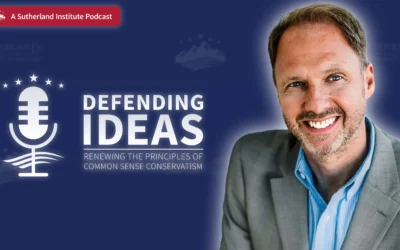Written by Kate Simpson
April 16, 2018
Originally published by the Deseret News.
More than 60 percent of Utah residents will be affected by the recent organizational restructuring of the LDS Church’s elders quorums — the groups in which adult males meet — and the church’s personal ministering system, which now includes females ages 14-18.
This change will encourage people of different generations to work together, serve one another and learn from one another. We’ve been given an opportunity not just to exchange religious insight, but to unite generations.
Right now, a gap exists in American society — one that will continue to grow if intergenerational interaction is avoided. As an individualistic culture, Americans tend to separate by generation and live independently from grandparents and parents, leaving us vulnerable to misconceptions and lack of influence on each other. While younger people can bring energy and enthusiasm to the table, those from older generations have vital insight and perspective from history. There are crucial lessons to be learned from all generations.
As a millennial, I don’t know what it was like to live when the Berlin Wall or Soviet Union existed, nor do I remember what it was like to fly before 9/11. I have been taught concepts and principles of democratic government, federalism and freedom from a young age and from a range of sources, but while principles and concepts are important, real-life experience is unparalleled.
Perhaps talking with and learning from older generations about their values, their views on the size and role of government, and economic lessons they’ve learned from history could provide a means by which we can suture not only the generational gap but the growing political divide. Are we really trying to avoid repeating history’s mistakes? If so, we have to know our history — and talking with people who have lived it is the best place to start.
Civil dialogue is key. Think (and ask) about what was better way back when. What was worse? How far have we come? What should stay the same? What really matters in life when it comes down to it? How do we measure our lives now? How should we measure our lives? These questions are bound to start enriching, enlightening and uniting conversations.
Developing and nourishing intergenerational relationships does not depend on religious affiliation or belief — all people everywhere can and should begin to develop and strengthen relationships with people of different ages, especially the valuable resource that is our elders.
We should take this cue from the LDS Church to help strengthen intergenerational relationships. Strong families, connected communities and intergenerational ties are the key to healthy, functional societies.
More Insights
Read More
How much money did the top ten ranking high schools spend per student?
Research suggests that the issue is complicated, that money does matter for school performance, and how it’s spent matters a great deal.
Why we need to fix Social Security within 10 years
On this episode we sit down with an expert to dispel some of the myths about the state of retirement today and offer a framework for how to fix Social Security before it’s too late.
Conservatives’ Golden Opportunity to Win the Minimum-Wage Argument
Election year offers conservatives an opportunity to deliver a pro-worker message that can win over persuadables on the minimum-wage debate.


